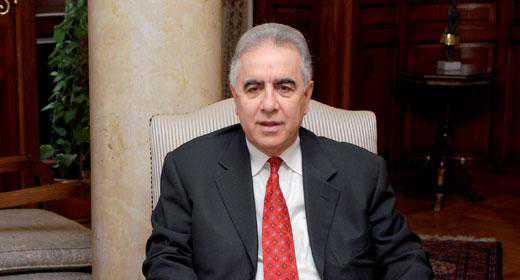
The conflict between Armenia and Azerbaijan over Karabagh (Artsakh) should not give free license to anyone to make racist and insulting statements about people on the other side of the border. Even under war conditions, there are civilized norms of behavior.
Since these two neighboring countries are in the midst of delicate negotiations to resolve their thorny conflict, it is highly irresponsible to pour oil on the fire by inciting inter-ethnic and inter-religious hatred, and inflaming pent up emotions! While some Armenians may engage in periodic emotional outbursts, Azerbaijan’s leaders have elevated the making of racist statements and anti-Armenian threats into state policy!
Such despicable behavior has caused the Artsakh conflict to spill over into Hungary (by using an axe), Mexico (by offering a $5 million bounty for Aliyev’s statue with an anti-Armenian plaque in a park), and many other countries around the world, thousands of miles away from the actual theater of conflict!
The Azeris have now decided to fight the Artsakh war in Hollywood, after Armenia officially submitted for an Oscar an innocuous film titled “If Only Everyone,” for the category of Best Foreign Film. The movie’s American premiere was held last Saturday at the ARPA International Film Festival in Hollywood.
The Armenian movie depicts the story of a young Russian girl whose father was killed during the Artsakh war. Twenty years later, she comes to Armenia hoping that the Commander of her father’s military unit would help locate his unmarked grave. After a lengthy search, the young girl discovers that her father’s grave lies on the other side of the border, inside Azerbaijan. She and the Armenian Commander cross the frontline surreptitiously in the cover of darkness, and while planting a birch tree by her father’s grave, are confronted by an armed Azeri shepherd who threatens to shoot them. Upon learning that the girl’s father is buried there, the Azeri lets them go safely after telling them with a heavy heart, that his 10-year-old son had also died during the war after stepping on a landmine. The Azeri shepherd tells that he is unable to visit his son’s grave because it is located inside Artsakh. The movie ends on a high note with a wonderful gesture, when the Russian girl and her Armenian companions plant another tree, this time next to the young Azeri boy’s grave.
Even though the movie neither contains anti-Azeri rhetoric nor depicts any scenes of the Karabagh war, Azerbaijani journalists have harshly attacked it without having seen a single clip. Apparently, the fact that it was an Armenian film was enough reason for them to try and undermine its submission for the Academy Awards! The Azeri media falsely labeled the movie as a “propaganda film” and an example of “the information war unleashed by Armenia against Azerbaijan.”
To make matters worse, Ali Hajizade, an Azeri journalist, attacked Teni Melidonian, the publicist for the Academy of Motion Picture Arts and Sciences for simply being of Armenian heritage! As part of her official duties, she had issued a press release that named all 71 foreign countries that had submitted movies for the Foreign Language Film category, including Armenia, Azerbaijan, and Turkey!
It is important for Azeris to understand that such racist remarks have no place in civilized society. The conflict between Armenia and Azerbaijan needs to be resolved through peaceful negotiations, not by hurling xenophobic insults. Someday, when peace returns to the region, Armenians and Azeris will have to live side by side, not as enemies, but as neighbors and friends. Azeris who are engaged in sowing seeds of hatred and racism are not only besmirching their own reputation, but unnecessarily aggravating and prolonging the antagonism between the two peoples.
Fortunately, Armenians have refrained from retaliating against the film submitted by Azerbaijan to the Oscars. Political feuds should not be converted into cultural wars or personal vendettas. May the best movie win regardless of whether it is produced by an Armenian, an Azeri or a Turk! The Academy will announce the short list of nine films in the Foreign Language Film category on December 20, 2012, the five finalists on January 10, 2012, and the Oscar winner on February 24, 2013.
“If Only Everyone” is co-produced by Tereza Varzhapetyan and award winning actor and director Michael Poghosyan, who plays the role of the retired Armenian Commander. Natalia Belyauskene is the director and Ekaterina Shitova plays the role of the young Russian girl. The movie was screened in Yerevan, Moscow, Paris, Bucharest, and Hollywood, and has won several awards at international film festivals.






